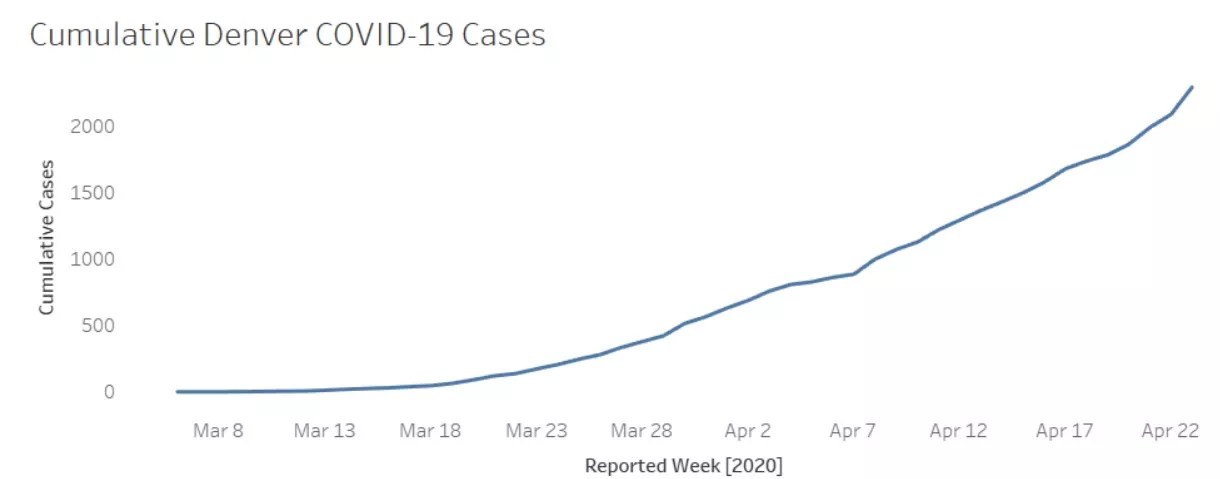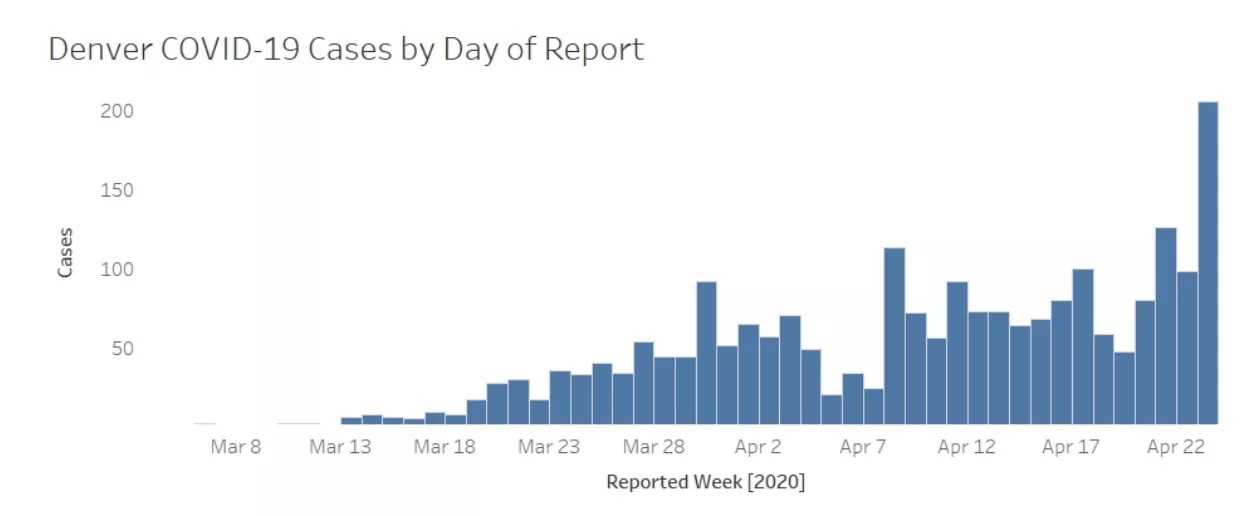

Audio By Carbonatix
Editor’s note: Denver Mayor Michael Hancock addressed his reasons for extending the city’s stay-at-home order until May 8 during a press conference at 10 a.m. on April 24, after the publication of this post. Learn more in “COVID-19 Update: Denver Needs More Testing Before It Can Reopen.” Continue for our previous coverage.
Colorado’s stay-at-home order established by Governor Jared Polis to fight COVID-19 is set to expire April 26 – but not in Denver. The Mile High City’s timeline was already longer than the state’s, stretching to April 30, and now Mayor Michael Hancock is pushing it out even further, to May 8.
Hancock is expected to explain his reasoning at a press conference scheduled for 10 a.m. today, April 24. But new and distressing Denver Public Health data related to the spread of the novel coronavirus within city limits offers a rationale for applying the brakes amid the race to reopen.
Denver’s decision is similar to ones being made by other large metro areas in states whose stay-at-home orders are among the earliest to be lifted. Colorado is on the leading edge of this trend, along with Georgia, South Carolina and Tennessee – and the latter three have been widely criticized for lifting lockdowns so early.
In Tennessee, however, the April 30 end of its stay-at-home order doesn’t apply to six of the most populous counties, and cities with their own health departments are allowed to set their own schedules. In Memphis, for instance, Mayor Jim Strickland has announced that his city will remain under the current restrictions until at least May 5, and they could be lengthened should conditions warrant doing so.
In Denver, meanwhile, the casualty count from COVID-19 has been growing at a rapid pace. Figures from April 21 shared in our recent post about the Denver neighborhoods with the most fatalities showed 97 deaths. Two days later, April 23 data – the most recent available – documents 129 deaths. That’s a 25 percent increase in 48 hours.
A similar trend line can be seen in other categories. Here are the cumulative Denver COVID-19 cases:

This trajectory is mirrored by a representation depicting Denver COVID-19 cases by day:

Clearly, neither of these charts fit the trendy phrase “flattening the curve.”
In recent press conferences, Polis has stressed that local jurisdictions will have the flexibility to put rules in place that fit their specific needs – but these mentions have typically been in the context of municipalities that may not have been especially hard hit by infections and want to loosen regulations beyond those established for the state as a whole.
In Denver, though, Hancock has chosen to go the other direction. His choice may not be intended as a rebuke to Polis’s eagerness, but expect it to be taken that way in many quarters.